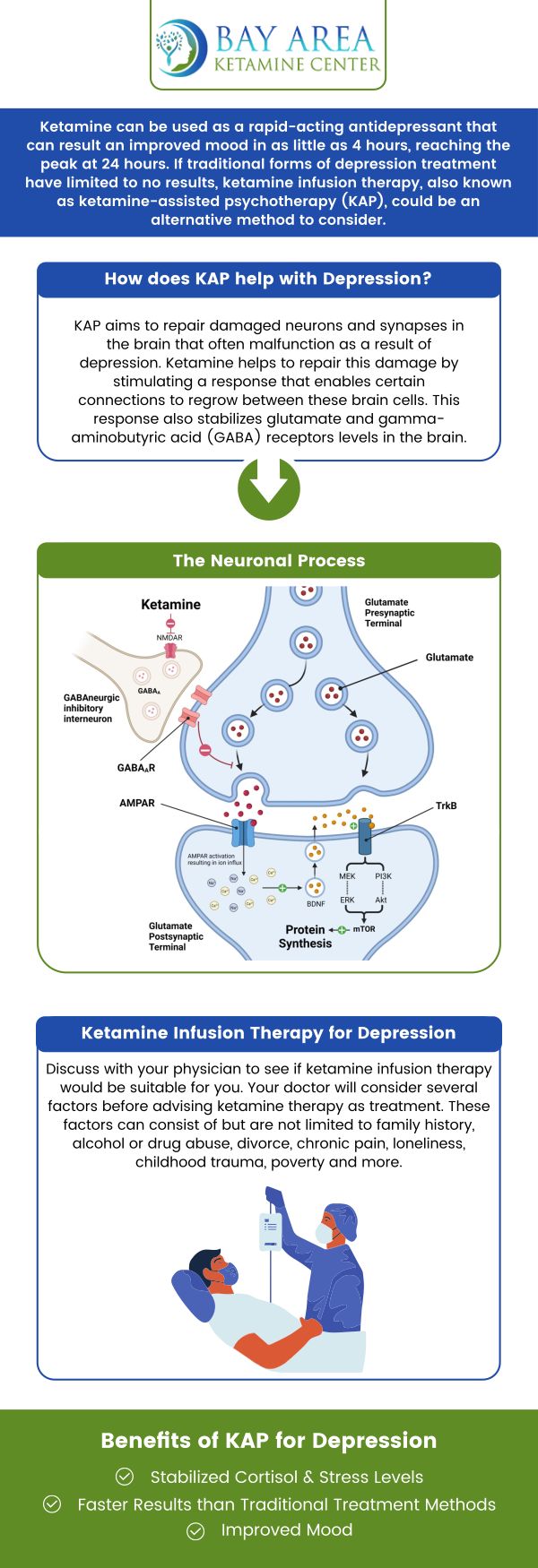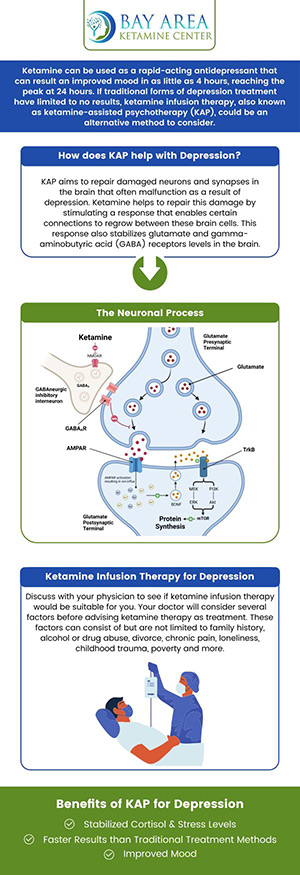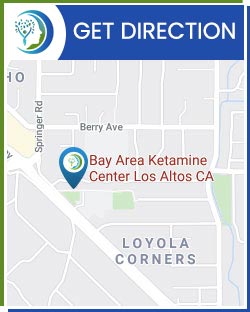What to Expect After Ketamine Treatment for Depression?
Ketamine therapy is an option when other treatments fail to alleviate a person’s depression. People who have not reacted well to conventional antidepressant drugs may benefit from ketamine therapy. Ketamine relieves depression symptoms. After ketamine therapy, a patient may experience some minor symptoms, such as nausea, dizziness, or blurred vision. Typically, these side effects disappear immediately and without the need for treatment. Patients frequently report feeling better soon after receiving treatment. Visit us at the Bay Area Ketamine Center to get specialized and comprehensive care. For more information, contact us today or schedule an appointment online. Our clinic is conveniently located at 746 Altos Oaks Drive Suite B, Los Altos, CA 94024.




Table of Contents:
How do I know if ketamine therapy worked?
How should I expect to feel afterward?
Should I continue seeing my psychiatrist? What if I don’t have one?
Will I be required to stop taking my psychiatric medications?
After ketamine therapy, several benefits can demonstrate that the treatment was effective, including.
Less prominent symptoms: It’s common to experience a decrease in mental health symptoms after treatment. This is one of the main signs that ketamine therapy has been successful. Patients often experience a noticeable reduction in the intensity and frequency of depression, anxiety, or PTSD symptoms.
Elevated mood: An overall improvement in mood is another common indication of the success of ketamine therapy. Patients often report feeling upbeat, energized, and inspired after their session.
Increased productivity: Many who found it difficult to complete daily tasks or were unmotivated before therapy have reported higher productivity levels and significantly improved focus after treatment.
Higher quality sleep: A frustrating symptom of many mental health conditions is sleep disturbance. After ketamine treatment, many people report improved sleep and feeling more rested and energized throughout the day.
It’s essential to keep in mind that the effects of treatment will vary on a case-by-case basis. In certain cases, it may take some time for the benefits of treatment to take full effect.
Following your ketamine therapy session, it is normal to experience a range of feelings and sensations. Some of the common experiences likely to occur after ketamine therapy include:
Euphoria: Generally, ketamine’s euphoric effects are most pronounced immediately following treatment and last for a short period, typically a few hours.
Relaxation: Many people report feelings of relaxation and calmness after ketamine therapy.
Improved mood: It is common to experience a sense of clarity and elevated mood following ketamine therapy. These effects typically persist for several days or weeks.
Drowsiness: Ketamine therapy can cause drowsiness and dizziness. These sensations usually persist for a few hours following treatment.
Dissociation: Ketamine therapy can cause dissociation. This is a sense of disconnection from your body or surroundings. During the treatment, you may experience feelings of detachment or altered perceptions of your surroundings. Sometimes, this feeling is also present after therapy has concluded.
Nausea: Potential side effects of ketamine therapy include nausea and vomiting.
After undergoing ketamine therapy for a mental health condition, it is highly recommended to continue seeing a psychiatrist or mental health provider. Though it is very effective, ketamine therapy is not a standalone treatment. Continuous psychiatric care is recommended to ensure the most desirable results from treatment.
A psychiatrist can monitor your progress, adjust the treatment strategy as necessary, and provide ongoing support and guidance throughout treatment. These mental health professionals can also elaborate on the benefits and risks of ketamine therapy and answer any questions or concerns you may have.
If you don’t currently have a psychiatrist, it is important to connect with one who can provide ongoing, quality care and support. Our knowledgeable team is here to provide personalized treatment to help you manage your mental health condition effectively.
In some circumstances, it may be necessary to temporarily stop taking some medications to prevent the possibility of drug interactions and additional side effects. To determine whether any adjustment to your medication is required, the healthcare provider will consider your current condition, medical history, and medication regimen.
However, the majority of the time, you won’t have to stop taking your medications before or during ketamine therapy. Your healthcare provider will work with you to develop a treatment plan that considers all of your medications and ensures they are safe and effective in combination with ketamine therapy.
It’s very important to always follow your healthcare provider’s guidance regarding your medication regimen, before and during ketamine therapy. If you have questions or concerns about your medications, be sure to discuss them with your healthcare provider, during the preliminary consultation.
If you are suffering from depression and are not responding to existing treatments, ketamine is a possibility. For more information, contact us today or schedule an appointment online. Our clinic is conveniently located at 746 Altos Oaks Drive Suite B, Los Altos, CA 94024. We serve patients from Los Altos CA, Sunnyvale CA, Palo Alto CA, Stanford CA, Atherton CA, Cupertino CA, Santa Clara CA, Mountain View CA, Loyola CA, and surrounding areas.

Check Out Our 5 Star Reviews







